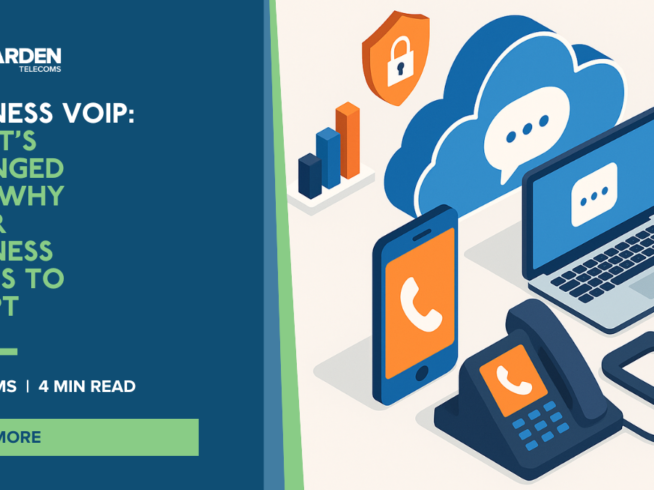


Hosted telecoms is becoming a popular choice due to the reduced office space required when compared to an on-premises PBX. Saving space isn’t the only benefit to hosting your communications in the cloud though. Many businesses also choose cloud telephony because of:
Businesses are always looking for ways to increase their efficiency. Cloud telecoms services offer organisations the opportunity to move a large part of their telecoms infrastructure off-premises to reduce their costs and increase their functionality.
At Carden Telecoms, we’ve helped businesses of all sizes to replace their on-premises private branch exchange (PBX) telephone systems with modern cloud communications solutions. If you’re confused about the differences between our business phone systems or are unsure about which one is best suited for your company, speak to one of our team. We’ll be happy to talk through the options and find your company the best business phone line deal.







Excellent IT provider. Our business was running an out-dated phone system and a variety of different windows packages. With the help of Carden IT, we were able to overhaul our entire IT infrastructure. The staff are very knowledgeable, patient and good value. Highly recommend.
We have been using Carden for many years to look after our telephone and broadband systems and couldn't be happier. Great service and super fast to respond to any enquiries. Would definitely recommend.
At PH Beck we have been using Carden for years. We use Carden for various support and services, one of which is for our phones and broadband. Carden provide us with a great phone system that has many features beneficial to our company. The broadband is of great speed and we would highly recommend Carden to help your business, like they have done for us.
Carden Telecoms have a great team, offer a super fast service and are always helpful.
Carden have been our Telecoms provider from day one and we highly recommend their services.
What are cloud telecoms services?
Cloud telecoms refers to any telecoms infrastructure which is hosted in the cloud rather than on-premises. Most VoIP platforms are examples of cloud telecoms.
How does cloud telecoms work?
The telecoms platform is hosted on a server in a data centre which is then accessed over an internet connection. This can be a public cloud provider’s data centre or one which is built specifically for your business.
How do I get cloud telecoms?
Our team can help you choose the best VoIP platform for your business. We can also host it for you on our own cloud if you do not already use a public cloud platform.
What is the difference between VoIP and cloud?
Most VoIP platforms use the cloud, but cloud computing is a much wider field. VoIP stands for Voice over Internet Protocol. It refers to a technology that converts analogue voice signals into digital data packets which can then be sent over an internet connection. The cloud refers to any computing that happens off-premises.













